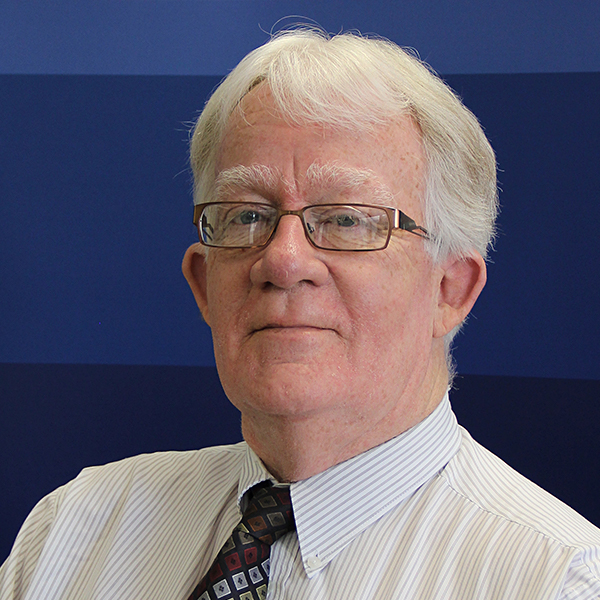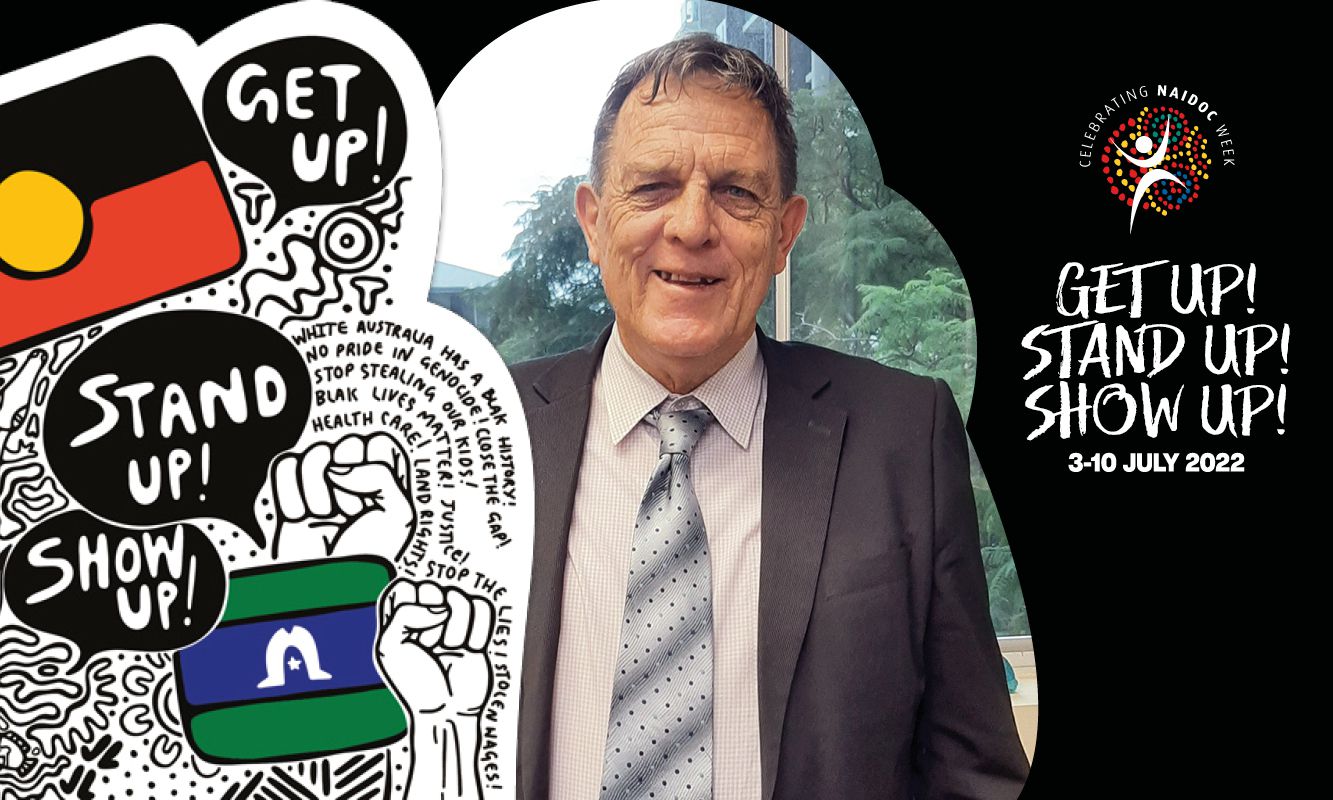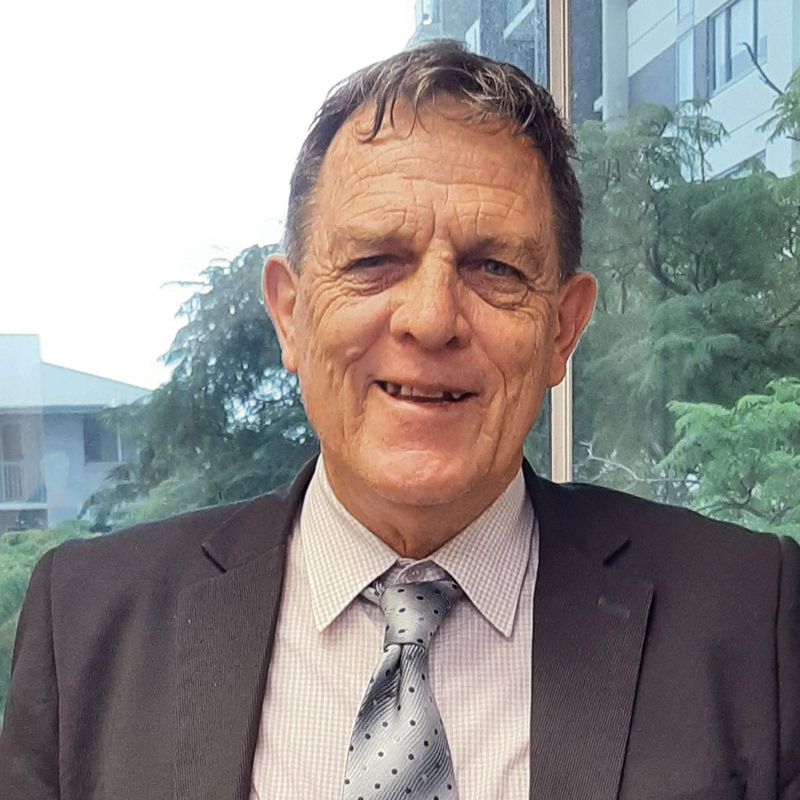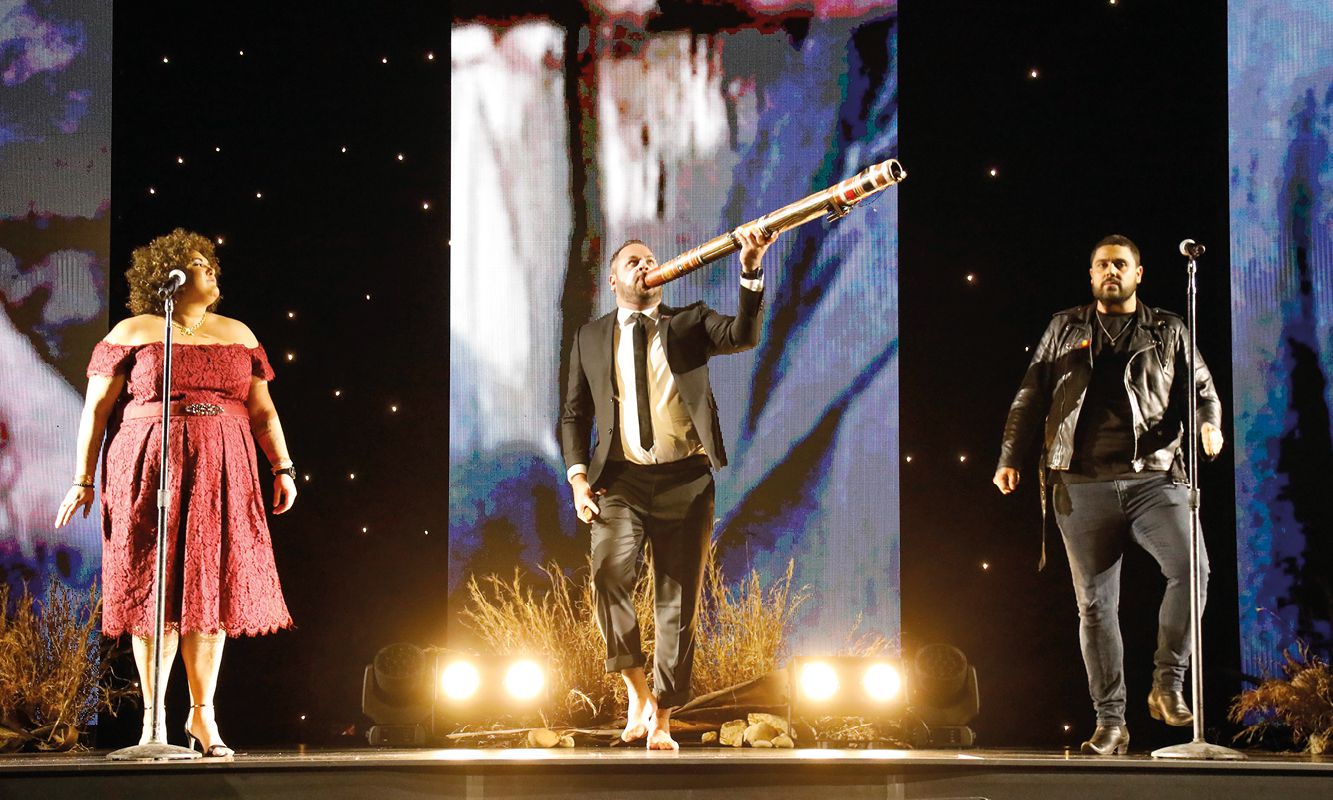This is NAIDOC Week, named for the National Aborigines and Islanders Day Observance Committee.
With its roots in the 1938 Day of Mourning, NAIDOC Week is a time for reflection and, for celebration, among other things.
It is a time to meet, and honour, members of the First Nations community who continue to work for reconciliation and to right the wrongs of the past.
Uncle Terry Stedman is a descendant of the Kamilaroi people in New South Wales. He identifies as a First Nations person and has long been accepted as such in the Brisbane suburb of Inala where he grew up.
“I grew up in Inala and was raised by a single parent, my father,” he said. “I was part of the socio-economic disadvantaged group of people in society, living on the (then) fringe of Brisbane. Despite the disadvantages of being raised in a fringe suburb, I had a lot to be thankful for and had a father with a good moral compass.
“I can remember those early days going to school barefooted, writing on slates, having to sing God Save the Queen each morning in the classroom. You soon become aware of your place in society when you are taught songs with the word ‘nigger’ in it.
“My father and the parents of the many other First Nation families in our community knew to keep to ourselves and to not draw attention to themselves – particularly in relation to Dad being a single parent of my brother.
“If Family Services were aware they were single-parent First Nation males, they were not allowed to rent a Housing Commission house, they were not to be seen raising children. I spent my early years as a latchkey child.
“As I became older, I became more aware of being treated differently. I learnt how to fight against subjugation and discrimination by listening to my father, watching my peers and being guided by Mr Kevin Hooper MLA.”
Before a late beginning in law, Terry worked as a plumber and drainer, gasfitter and corrections officer in Queensland and New South Wales, eventually being appointed as a Commissioner on the Queensland Corrective Services Commission Board.
“Law was not my first choice for a career,” he said. “I started my full-time tertiary studies in my 30s. I was studying an Arts Degree, Bachelor of Indigenous Studies (Bindigs) at Southern Cross University. After completing a couple of law units in Bindigs I was asked by the law school to consider law and study the two as a double degree.
“Circumstances in my life saw me urgently taking full-time care of my four children and moving to Brisbane for family support. I then enrolled at Griffith University with the support of the Gumurri Unit.”
While at Griffith, Terry first encountered the LawLink program, a Queensland Law Society initiative introducing Indigenous students to the Queensland legal profession.
“Terri Hutchinson played a significant part in facilitating this,” Terry said. “My participation in LawLink provided me with an understanding of the QLS, its other committees and other like-minded interest groups.
“The first 10 years after my admission were predominantly spent working at a community legal centre in Inala. My work was focused on families in and around Child Protection matters. Although very draining, it can be quite fulfilling to know the outcome you sought was achieved, albeit after much frustration. During this time I also appeared as Duty Lawyer in the Beenleigh and Ipswich Magistrates Domestic Violence Courts.
“I founded the first Child Protection Duty Lawyer service at Beenleigh Children’s Court five years before Legal Aid saw fit to establish a similar program across the state.
“I changed work environments to Caxton Community Legal Centre and found my skills being utilised by the employer as Duty Lawyer in the Brisbane Domestic Violence Magistrates Court, providing family and domestic violence client advice and supervising junior practitioners. I appear in the DV court on police application days and private application days.
“I do like to see a person get a fair go, however I also like to see a person own their faults and flaws if there are any and take responsibility in hope that their efforts will save a repeat of the behaviour complained of. Sadly, it’s not a common occurrence and would only be commonplace in a perfect world, in which we don’t live!”
Terry Stedman
Terry professed a “fairly reasonable” knowledge of his culture and its history, including post-colonialism effects of settlement, dispossession, massacres, child removals, concerted attempt to ‘breed the black out’, state-sanctioned poisoning, social and economic disadvantage in a contemporary sense, and how these had impacted upon many First Nation communities in Australia. As a lecturer to first-year law students at Griffith University for a couple of years, he would deliver lectures focused on invasion, massacres, racism, the stolen generation and dispossession.
Today he is still very involved in the community as the Chairperson of Logan Aboriginal and Torres Strait Islander Corporation for Elders. He is also a management committee member/director of the Mununjali Health Service, both organisations being corporations under the governance of the Official Register of Indigenous Corporations.
Terry devotes a considerable amount of time to the Queensland Law Society First Nations Consultative Committee (in his role as Chair) and the First Nations Policy Committee with the Law Council of Australia.
“I still have a ‘fire in the belly’ when it comes to my community issues and have always been a strong advocate for fairness and justice,” he said.
“I enjoy being an advocate, whether for my community or any other person I am assisting. The things I enjoy are, expressing my arguments as a journey in a courtroom to a magistrate, thinking quick to develop an argument when surprises arise; and I am satisfied I have always done my best work for any client I have ever assisted.”
Terry played a key role in the formation of the QLS Reconciliation Action Plan (RAP), but as chair of the First Nations Consultative Committee sees that there is much still to be done.
“We would like to convince QLS that the committee should be a major standalone policy unit within QLS,” he said. “We also hope to see the Cultural Immersion Program flourish through promotion from Queensland’s district law associations, and we would like to see the QLS Constitution varied to create a permanent First Nations position on Council.”
Although First Nations representation in the Queensland legal profession including the judiciary is growing, Terry says there are still barriers to First Nations students entering the profession.
“There are a number of barriers, he said. “These include being raised in a community where there is limited access to education, and having the support of your community – both First Nation and non-First Nations.
“An example of community failure is evident in a state primary school in western Queensland that refuses to fly the Murri flag the right way up, despite knowing that it offends the First Nations community. Our children in that school should not be exposed to racism, but they are.”
Other barriers include:
- having family obligations which can’t be done from a distance
- the cost of tertiary studies and an ever-growing HECS debt
- the fact that many aspiring First Nations lawyers are mature-age students.
Performers at the 2019 NAIDC Week Awards. Image courtesy of National NAIDOC Committee.
Finally, I asked Terry about the issues that should come to the fore during NAIDOC Week.
“Truth telling,” he said. “Queensland needs to join other states in developing a truth-telling commission.
“The age of criminal responsibility should be raised to 14. We need to stop children under the age of 14 going to detention.
“Elders from all over this country came together in 1938 at Sydney Town Hall and provided the Federal Government of the day with a ’10-point plan’. It still remains to be addressed.
“Last year was the 30th anniversary of the Royal Commission into Aboriginal Deaths in Custody – the country failed to competently address and implement the recommendations.
“We have more children being removed now than occurred up to the findings of Stolen Generation report.
“And we have more children committing suicide that any other First Nations group in the world.
“We need a Ombudsman in this state, and we need to have a voice to parliament that is sincere and will be listened to.
“We need government to realise that the removal of intergenerational wealth by dispossession requires recognition and remedy.
“And I don’t want these same issues to still be a concern in 80 years’ time.”
Several events planned for NAIDOC Week may be impacted by adverse weather in parts of Queensland. Among them is the Logan NAIDOC hosted by Logan Elders that was to be held on 5 July at the Kingston Butter Factory. It has been rescheduled for 17 August.















Share this article